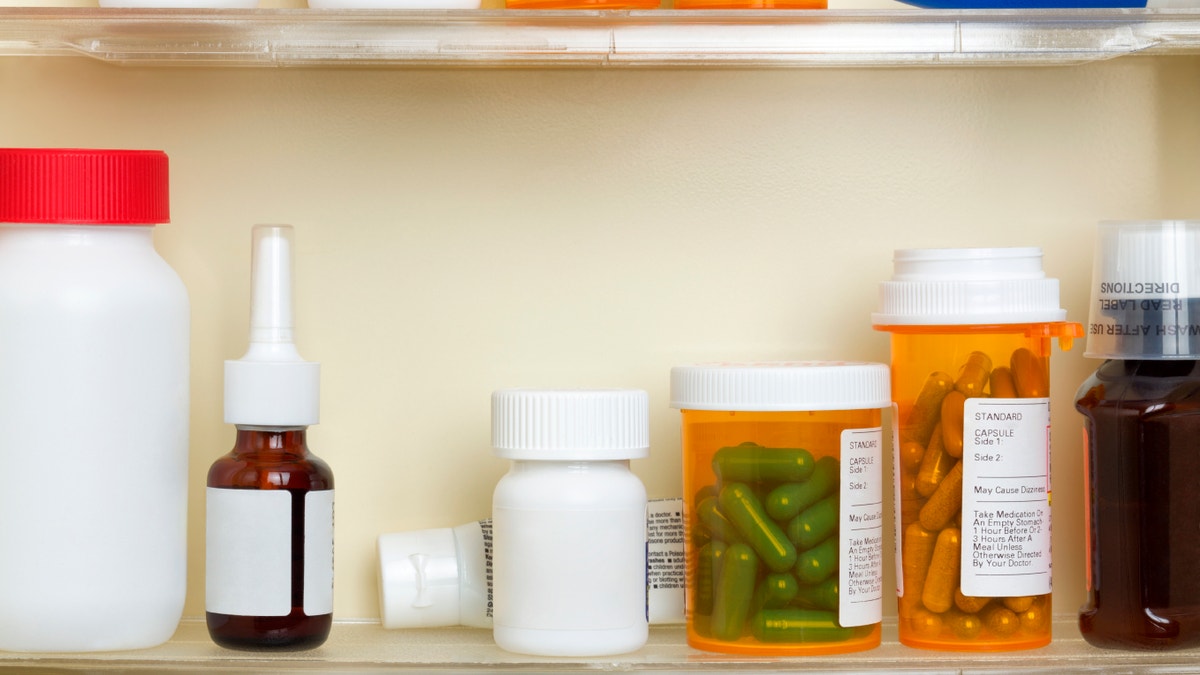
Several containers of over the counter and prescription medications on the shelves of a 1960's medicine cabinet. (iStock)
Infants age six months and younger may not be very mobile yet, but they are still often finding their way to dangerous substances, according to a study of calls to U.S. poison control centers.
Researchers found that babies sometimes manage to get at medications directly, and often guardians administer the wrong medication or the wrong dose of the right medication.
"Pediatricians typically do not begin poison prevention education until about 6 months of age since we typically think about the exploratory ingestion - that is when kids begin to explore their environment and get into things they are not supposed to," said lead author Dr. A. Min Kang of Banner-University Medical Center Phoenix by email. "But infants this young (under 6 months) are obviously not moving around beyond where their caregivers put them down."
The researchers looked at National Poison Data System files on exposure calls for infants aged six months or younger between 2004 and 2013.
There were more than 270,000 exposures over the 10-year period and almost all were unintentional.
Half were general, unintentional exposures, which includes the baby exploring and consuming a hazardous substance.
Almost 38 percent of the calls were for so-called therapeutic errors, and the great majority of these involved medication dosing with a different amount than intended, or medication given twice or too soon, the wrong medication given, or medication delivered by the wrong route.
Almost all exposures happened in the home, and most involved a single substance, usually a liquid, according to the report in Pediatrics.
"Many of these are creams or bath soaps that the infant may get a hold of and put in the mouth while the caregiver is changing a diaper or bathing them," Kang told Reuters Health. "In general, these would not be concerning exposures."
But medications including acetaminophen, cough and cold products, antibiotics, antihistamines and ibuprofen were also common.
Acetaminophen can be appropriate to treat a fever, but ibuprofen is not usually recommended for children under age six months, Kang said.
A 2008 Food and Drug Administration (FDA) public health advisory stipulates that children under two years of age should not be receiving cough or cold preparations, he said.
"The AAP (American Academy of Pediatrics) position statement also strongly recommends against using these products in children younger than 2, and also notes that studies have not demonstrated that they work in children under 6," Kang said.
Although newborns and infants are not very mobile, they may get into medicines accidentally when a caregiver gives them a bottle of pills to use as a rattle or when an older sibling finds a medication and gives it to the infant, he said.
"There is some innovative safety packaging coming out for products specifically designed for this age group," said Dr. Dan Budnitz of the CDC's Medication Safety Program, who was not part of the new study.
"Manufacturers and the FDA recommend that these liquid products have flow restrictors, extra barriers even after you've taken the cap off," he told Reuters Health.
Since there have been cases of parents mixing up teaspoons and milliliters, many drug manufacturers are moving toward only listing doses as milliliters, and including a dosing device like an oral syringe with all liquid medicines, he said.
"Caregiver should try to be aware of the surroundings in which they place an infant because even if they are not mobile, they can still grab things within reaching distance (e.g. plants, objects at a diaper changing station, etc.) and the first thing they will do is put it in the mouth," Kang said.
"Be mindful of older siblings and restrict their access to dangerous substances because they may share things that they find," and don't use pill bottles as toys, he added.
The Poison Control Center is available by phone nationwide at 800-222-1222 all day and night, Kang noted. Caregivers should post this number or have it in their phones, he suggests.
